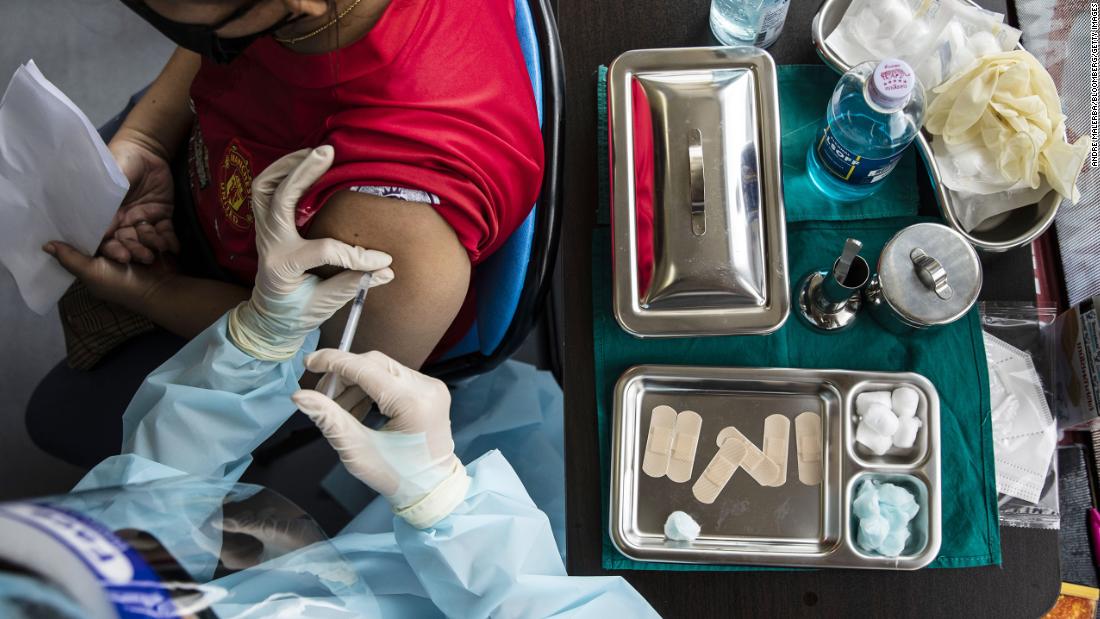
Currently, we are at risk of very different consequences. G7 countries typically donate approximately $ 122 billion to meet the long-term health, economic development and welfare needs of low-income countries. But this year is not a typical year. The crisis facing the world is doubling: Covid-19, war in Ukraine, food shortages, inflation. Some countries are considering redirecting aid to immediate humanitarian aid, such as the detention of Ukrainian refugees. Efforts to fight illness in low-income countries will cost billions of dollars.
You cannot leave the people affected by the war. But there is no need to accept the extreme suffering in one part of the globe and mitigate it in another. It is difficult to meet the urgent needs that the world is currently facing, but it cannot be helped. During the financial crisis, leaders have shown their political will to prioritize global health. Even now, the countries and organizations that make the most donations need to promise more medical assistance in their future budgets.
Development assistance is a small part of the budget of the country that donates it. But for those who receive it, it’s transformative. Over the last two decades, these contributions have helped the world experience one of the greatest stages of progress in the history of global health. Mortality rates for children under the age of 5 were reduced by more than 50% between 2000 and 2020. Deaths from some of the world’s most dangerous infectious diseases have decreased by 46% over the last two decades. It’s no coincidence that the economy has grown.
But when Covid-19 attacked, things went in the opposite direction. Deaths from malaria and tuberculosis, especially preventable diseases that hit low-income countries, have increased. Vaccination rates in childhood have declined.
You have the opportunity to get back on track through an investment that you know will pay big dividends. Use the World Fund to fight AIDS, tuberculosis and malaria. For every $ 100 million to the World Fund, it means nearly 100,000 tuberculosis treatments, 4.3 million HIV counseling and testing, and 7.6 million mosquito nets distributed to prevent malaria.
Generous development assistance will also accelerate many promising breakthroughs. The new oral vaccine may ultimately help eradicate polio if funds are available to distribute it. Promising new antiretroviral drugs, once exorbitantly expensive, are now widely available, reducing the chance of dying from AIDS.
Ending a broken heart of a parent burying a child is a good reason to invest. But properly spent money does much more. Eliminating preventable illnesses can help families and the country as a whole get out of poverty and become more stable. You can save money later by spending for better health in the donor country. For example, $ 100 million to the Global Fund will bring benefits of nearly $ 3 billion.
These investments help spread and stop the threat of viruses that can kill people in some parts of the world. The effects of the pandemic were as devastating as ever, but could be much worse. That’s because innovations and systems that prevent and treat illness during normal times have proved important during times of crisis.
Pakistan has also established a strong polio monitoring and rapid response infrastructure, which also helped in the fight against Covid-19. In South Africa, the development of a genomic surveillance network designed to track Ebola, yellow fever, and other illnesses has allowed scientists to identify new coronavirus variants. And a strong national care network established to combat HIV has made it possible to mobilize Covid quickly.
Everyone has a role to play in achieving this healthier and fairer future. Global institutions such as the donor government and the G7 must prioritize the needs of low-income countries. You can also instruct the International Monetary Fund to redistribute financial assets such as special drawing rights. This was recently distributed to ease the burden on Covid-19 and to give all countries a fair recovery opportunity.
Charity funds need to raise funding for global health, focusing on the countries with the highest needs. Pharmaceutical companies can sell medicines to low-income countries at low cost and make more secondary transactions. This allows other companies to manufacture products when there is an urgent need. Large companies can increase their contribution to both humanitarian efforts and multilateral global health organizations.
And countries facing these challenges on a daily basis can continue to strengthen their health systems in ways that are known to make a difference. We have better facilities than ever to build a world where the place where you were born does not determine whether you live or die. Bold efforts now can lead to a healthier and more equitable future for all.
..


Commentaires
Enregistrer un commentaire